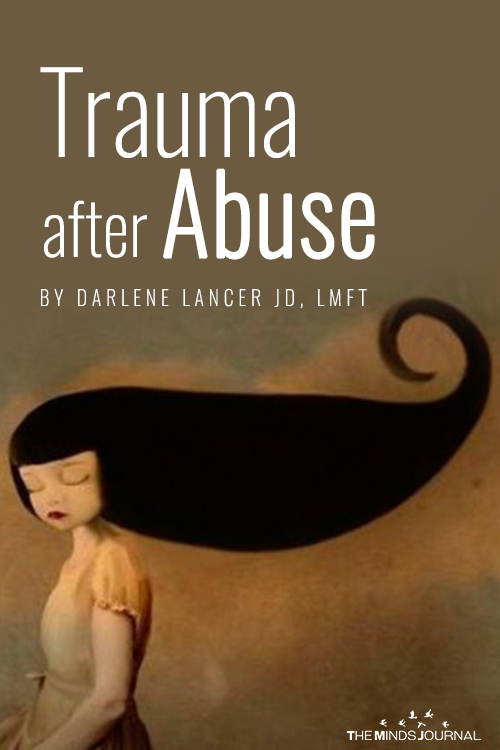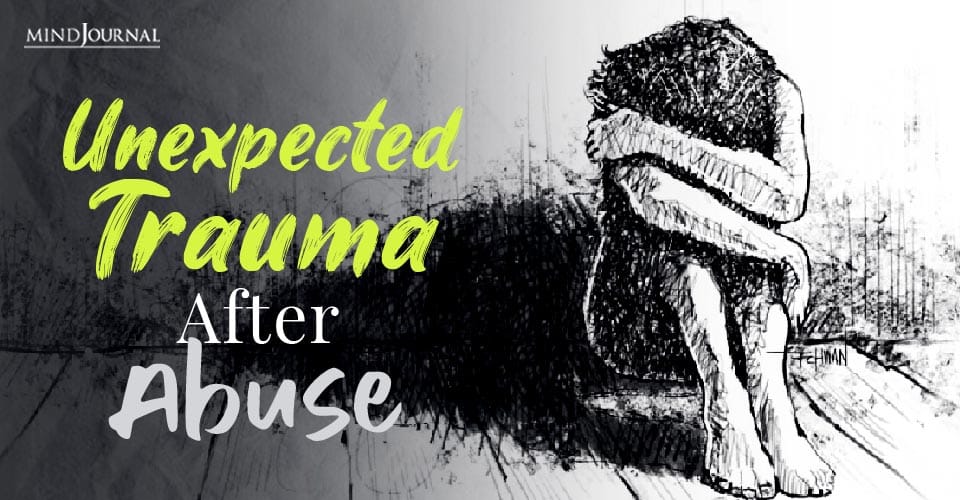Codependency robs us of self and self-love. We’ve learned to conceal who we really are, because we grew up pleasing, rebelling against, or withdrawing from dysfunctional parents. This sets us up for trauma. As adults, even if we’re successful in some areas, our emotional life isn’t easy.
Looking for security and love, most of us struggle to get into or out of relationships. We may remain in unhappy or abusive relationships or try to make painful ones work. Many of us would be content just to find a reprieve from ongoing anxiety or depression.
Related: How Empaths Can Recover From Trauma And PTSD: 7 Healing Strategies
After The Breakup
However, leaving a relationship isn’t the end of our problems. After initially rejoicing and reveling in newfound freedom, there’s often grief, regret, and sometimes guilt.
We might still love the very person whom we’re grateful we left. We may no longer speak to estranged friends or relatives, even children we love or worry about. These are unexpected losses to be embraced.
Going “no contact’ doesn’t necessarily end the pain either. The trauma of abuse isn’t over. Our self-esteem has surely suffered. We may lack confidence or feel unattractive. Abuse may continue in a new relationship, or by family members, by an ex whom we co-parent with, or through children who’ve been damaged or weaponized.
As hard as it was to break up an abusive relationship, it may still haunt us (sometimes even after the abuser is dead). One day, often decades later, we learn we have post-traumatic stress disorder (PTSD)―scars from the abuse we thought we’d left behind. We might have nightmares and become risk-averse or hesitant to love again. It’s not easy to “leave” for good.
Fearful of re-experiencing abuse, abandonment, or loss of our autonomy, many codependents become counter-dependent. Yet, our inability to be alone and/or low self-esteem can cause us to again make poor choices. Out of fear we may settle for someone “safe,” who isn’t right for us and whom we’d never commit to. But despite our intentions, we nevertheless reattach and find it difficult to leave.
We don’t trust ourselves and ponder whether the problem lies with us or our partner. And although we’ve vowed to never again let anyone abuse us, some of us may once more be betrayed, abandoned, or mistreated in ways we hadn’t anticipated. We have to let go all over again.
This cycle of abandonment can make us fearful of intimacy. If we opt for being alone, our needs for love and closeness go unmet. Loneliness can trigger toxic shame from childhood when we felt alone and unloved or unlovable. It may seem like there’s no hope or escape from our misfortune.
The Core Of Codependency
We didn’t expect that after coming out of denial, courageously setting boundaries, and leaving unhealthy or abusive relationships, we would then have to face the core of codependency. Our codependent symptoms have been coping mechanisms that masked our basic challenge:
How to fill our emptiness and loneliness with self-love.
In part, this reflects the human condition, but for codependents, these feelings are connected to trauma. Our insecurity, self-alienation, and self-love, and self-nurturing skills fuel addictive relationships and habits that cause us recurring emotional pain.
Related: How To Recover From Emotional Trauma of Domestic Abuse
Real Recovery
Just as addicts turn to an addiction to avoid unpleasant feelings, so do codependents distract and lose themselves by focusing on others or a relationship as sources of well-being. If we stop doing that―often not by choice, but due to isolation or rejection―we may uncover depression and feelings of loneliness and emptiness that we’ve been avoiding all along.
We keep recycling our codependency until we address our deepest pain.
Healing requires we turn our attention inward and learn to become our own best friend because our relationship with ourselves is the template for all our relationships.
With some insight, we discover that we’re actually quite self-critical and haven’t been treating ourselves kindly with self-compassion. In fact, we’ve been abusing ourselves all along. This is actually a positive revelation.
Our mission is clear: Learn to relate to ourselves in a healthier way. Our tasks are to:
1. Revitalize our connection to our internal cues―our guidance system―to trust ourselves.
2. Identify and honor our needs and feelings.
3. Nurture and comfort ourselves. Practice these tips. Listen to this Self-Love Meditation.
4. Meet our needs.
5. Heal our shame and affirm our authentic self.
6. Take responsibility for our pain, safety, and pleasure.
Follow the recovery plans laid out in Codependency for Dummies and Conquering Shame. Attend Codependents Anonymous (CoDA meetings), and work the Twelve Steps. PTSD and trauma don’t resolve on their own. Seek trauma counseling.
©Darlene Lancer 2019
Written by Darlene Lancer Originally appeared on What Is Codependency











Leave a Reply